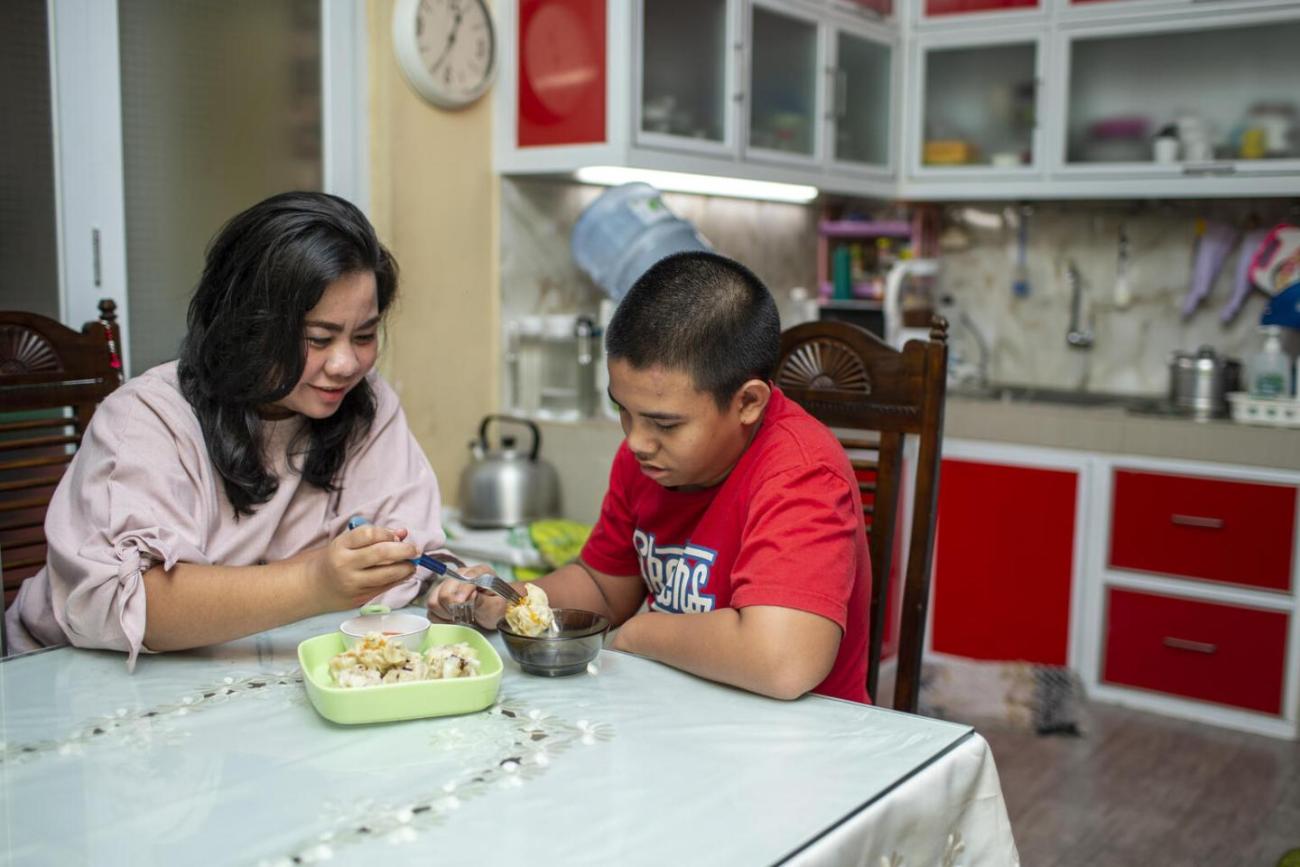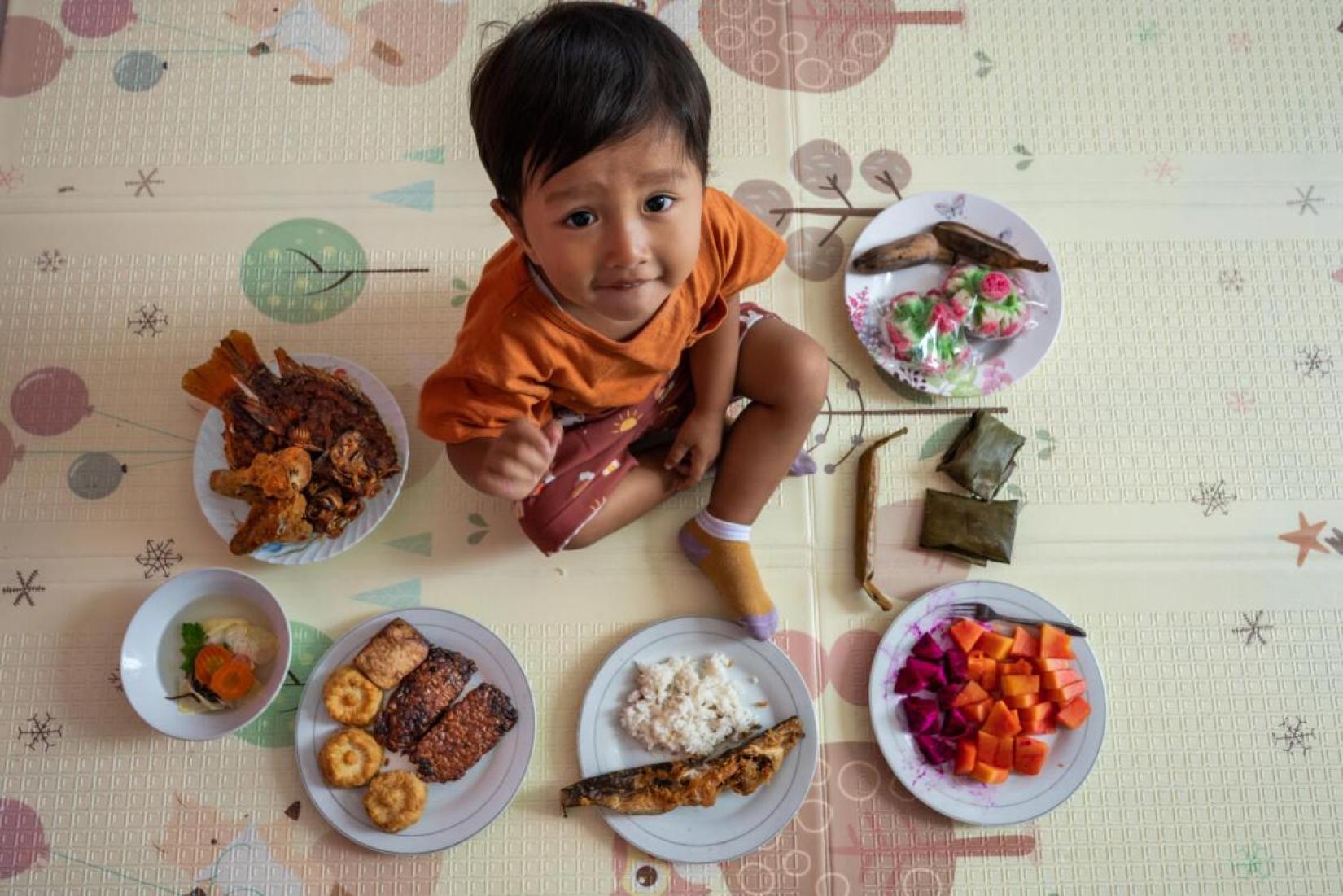How to Support Your Child if You Are Concerned About Their Weight

Here are ways for parents to lead with empathy and kindness.
It can be difficult to watch your child struggling with their weight. As a parent, you want to do everything you can to help your children – especially when they are stressed. Here are some ways to help support your child if you are worried that their weight may be affecting their health and well-being.
If you are concerned about your child’s weight, consider seeking advice from qualified healthcare providers, such as your family doctor or pediatrician. They will be able to provide you with further guidance on how you can support your child, as well as any services that your child may need and benefit from.
Avoid blame
Young people can gain weight due to several reasons outside of their control or individual behaviour, often with complex causes. Children who struggle with their weight frequently experience bias, stigma and bullying. It’s critical to stay away from blaming your child, and instead try to understand the structural issues at play that encourage weight gain. Starting from a better point of understanding can help you to provide your child with practical support.
A child’s weight over their life course can be influenced by the interaction between genetics, early life experiences and by their environment. Weight gain can be expected when a child eats, plays and learns in environments that encourage low-levels of physical activity and high consumption of cheap and easy-to-access energy-dense food that is high in unhealthy fats and sugar. More often than not, weight gain is the body’s normal response to an abnormal environment. In addition, children can sometimes engage in unhealthy eating to combat stress, boredom or to comfort themselves when feeling anxious or sad.
Approach conversations with no judgment
It is important that your child knows that you are there for them and always available to listen to their worries or concerns, without judgment.
Refrain from using stigmatizing language or making negative comments about people’s bodies – including your own. This can be harmful to your child’s self-esteem and make them feel uncomfortable about opening up to you.
An easy place to start is adopting person-first language when speaking about overweight and obesity. Placing the person before the condition helps to humanize those who are dealing with overweight and obesity, rather than having the condition define them. For example: "Person living with overweight (NOT an overweight person)."
Encourage an open dialogue and invite your child to share their thoughts and feelings about body image whenever they arise. If your child makes a negative comment about their weight, try to learn what’s behind it. Listen carefully and don’t dismiss or downplay their worries. If it turns out that another child or an adult is bullying your child, which can happen both online and in person, confront the situation directly and as soon as possible.
Encourage self-esteem and praise qualities in other areas that are not related to their weight. For example: “I was proud of how hard you studied for that exam,” or “I love how kind you are to your younger brother.”

Have healthy conversations
In a fast-changing digital landscape, it is important to remain aware of threats to the mental health and well-being of your child as it relates to their confidence and body image issues. These can range from social media posts stereotyping weight or encouraging eating disorders, to the constant corporate marketing of unhealthy junk food targeting children.
You should feel encouraged to create a safe space for healthy conversations by proactively offering the opportunity to speak about mental health with your child, and how online behaviour impacts their well-being and image of themselves.
Try these tips for approaching conversations about weight with your child:
-
Ask your child open-ended questions (such as “How are you feeling?” or “How are things going at school?”) and invite them to express their feelings.
-
Thank your child for trusting you with their feelings to build a sense of security.
-
Acknowledge that healthy eating and maintaining a healthy weight can be challenging, while emphasizing the benefits of better health.
-
Be positive and supportive.

Focus on healthy behaviours
Unless advised by a health professional, focus on “health and a healthy goals” rather than weight loss. Healthy eating and physical activity behaviours do not become routine overnight. It takes time, effort and perseverance from you and your child to make changes that last. Any big, sudden alterations to your child’s diet and lifestyle are unlikely to work and may even be harmful to your child’s health. Changes are more successful when they are small, incremental and involve the entire family.
Be the best example you can. Choose nutritious, whole foods like fresh fruits and vegetables, encourage physical activity, promote sufficient sleep, and refrain from negative talk about your or others’ weight.
No matter your weight, you can help to support your child by leading the way with healthy habits. Explore the different food groups together, learn what nutrients are needed as part of a healthy eating and discuss why certain foods are better options than others.
Do your best to discourage ultra-processed foods and beverages that are high in salt, sugar and fat, such as packaged fruit juices and sports drinks, savoury or sweet packaged snacks (e.g. cookies, chips), instant noodles, and confectionery, but avoid trying to ban certain foods completely as it can backfire and lead to greater cravings. Most grab-and-go snack foods are high in fat, sugar and salt, and do very little to satisfy hunger. Instead, make healthy, satiating snack foods available such as fruit, vegetable sticks, and nuts. Encourage water as the main drink of choice instead of sugary fruit drinks and be mindful of what foods and beverages are available at home.
Enjoy mealtimes together
As often as possible, prepare and have meals together as a family. This is a great time for talking about and practicing making healthy food choices. Give child-sized portions and let your child ask for more food if they’re still hungry. Having set mealtimes and snack times also helps to teach your child that there are set times for eating rather than encouraging grazing throughout the day.
Find joy in movement
Encourage outdoor play and being active together as a family. From age 3 years and up, children should be active for at least one hour each day, but this can be broken up into short periods of 15 to 20 minutes. For younger children, try playing chasing games like tag or ball games. For older children, go for family walks or try taking up a new sport together. Where possible, choose walking and cycling over travelling by car or transport. Encourage local or school team sports, which can make physical activity even more fun while building peer-to-peer connections.
Wellness, not weight
Avoid making weight the only focus in this process by paying greater attention to the family-wide benefits of healthy eating and active behaviours. These are the ingredients needed to support your child’s growth and development into adulthood, as well as boosting their immunity and emotional well-being. In fact, making the right changes at the family level will help prevent your child from having dieting or eating problems later in life.
Remember
The best way to support your child’s happiness and health is for them to know you’re there for them no matter what. Understand that this is difficult for them too, but by enjoying healthy meals and engaging in physical activity together as a family, you can help your child to feel supported in making positive, healthy lifestyle changes that can go far beyond weight loss.


